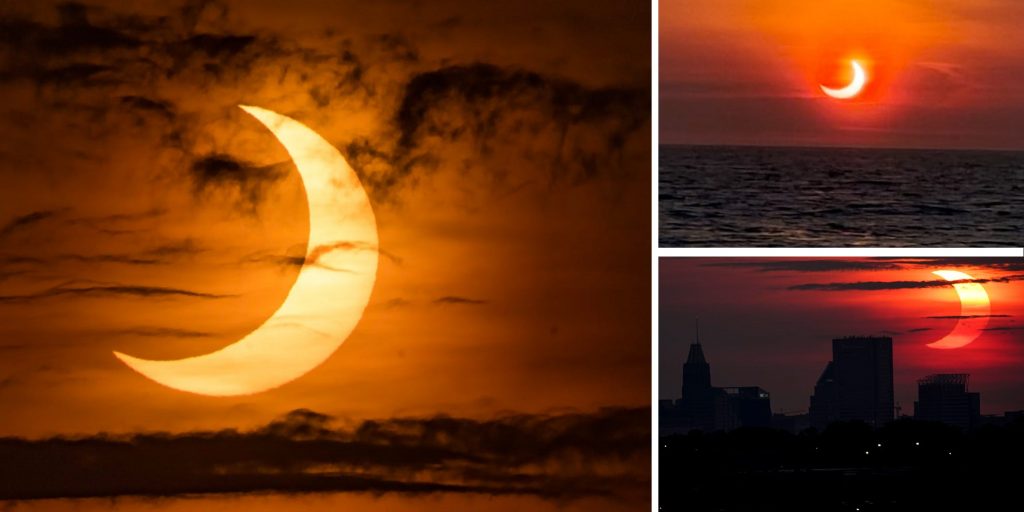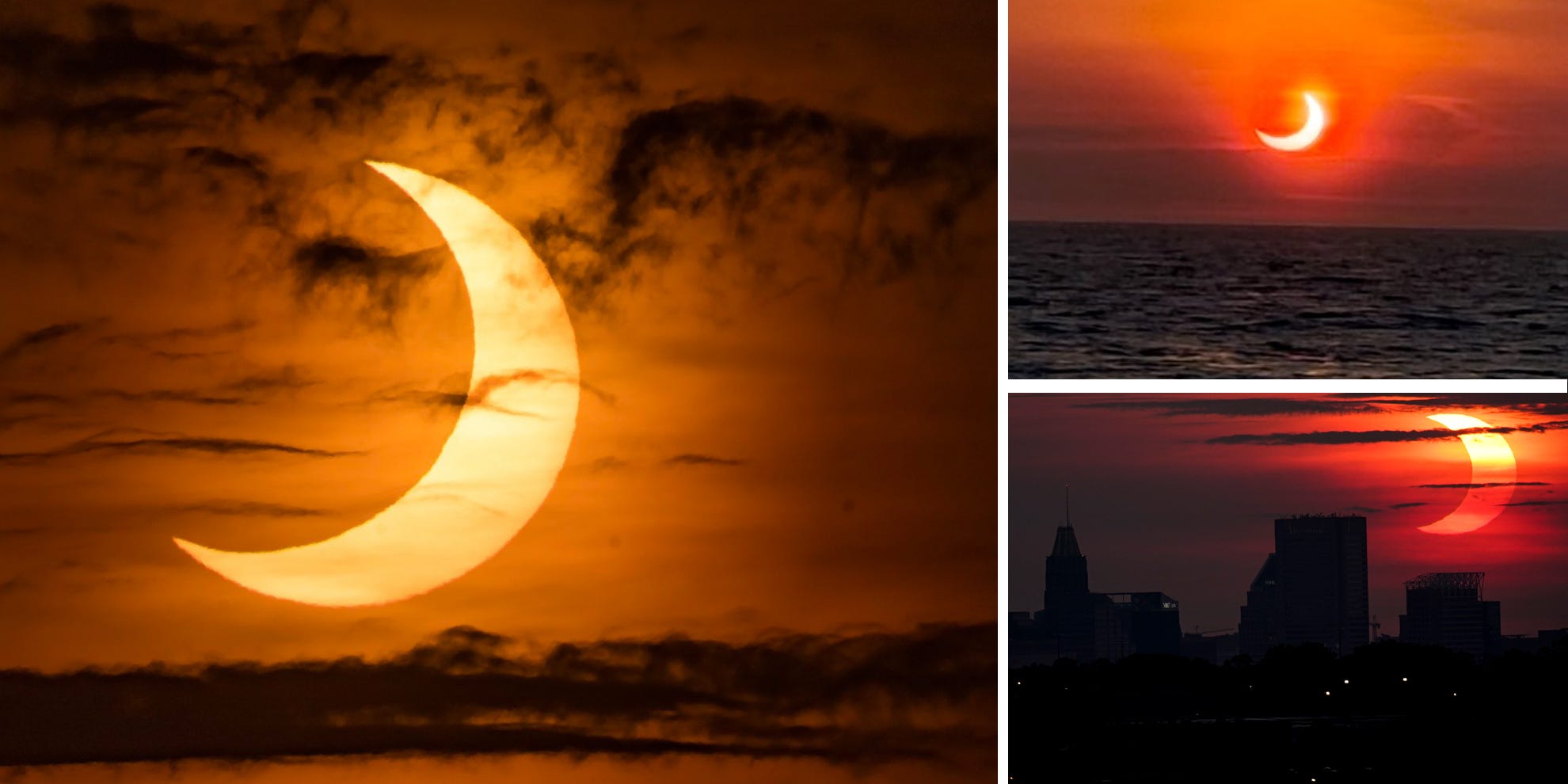
Insider/AP News/Brandon Berkoff/Collin Gross
- There was a partial solar eclipse Thursday morning over much of the Northern Hemisphere.
- Those in the northern US got one of the best views of the eclipse if they woke up early to see it.
- Here are some pictures showing the phenomenon in action.
- See more stories on Insider's business page.
Astronomy enthusiasts rose in the early-morning hours to capture a rare glimpse at a solar eclipse.
Those in the northern US as well as Canada and Greenland got the best shots of the "ring of fire" eclipse that took place Thursday morning, though the eclipse was only partial for most of the Northern Hemisphere.
A sliver of sun peaked out from behind the moon over the Baltimore skyline in this image taken by an Associated Press photographer.
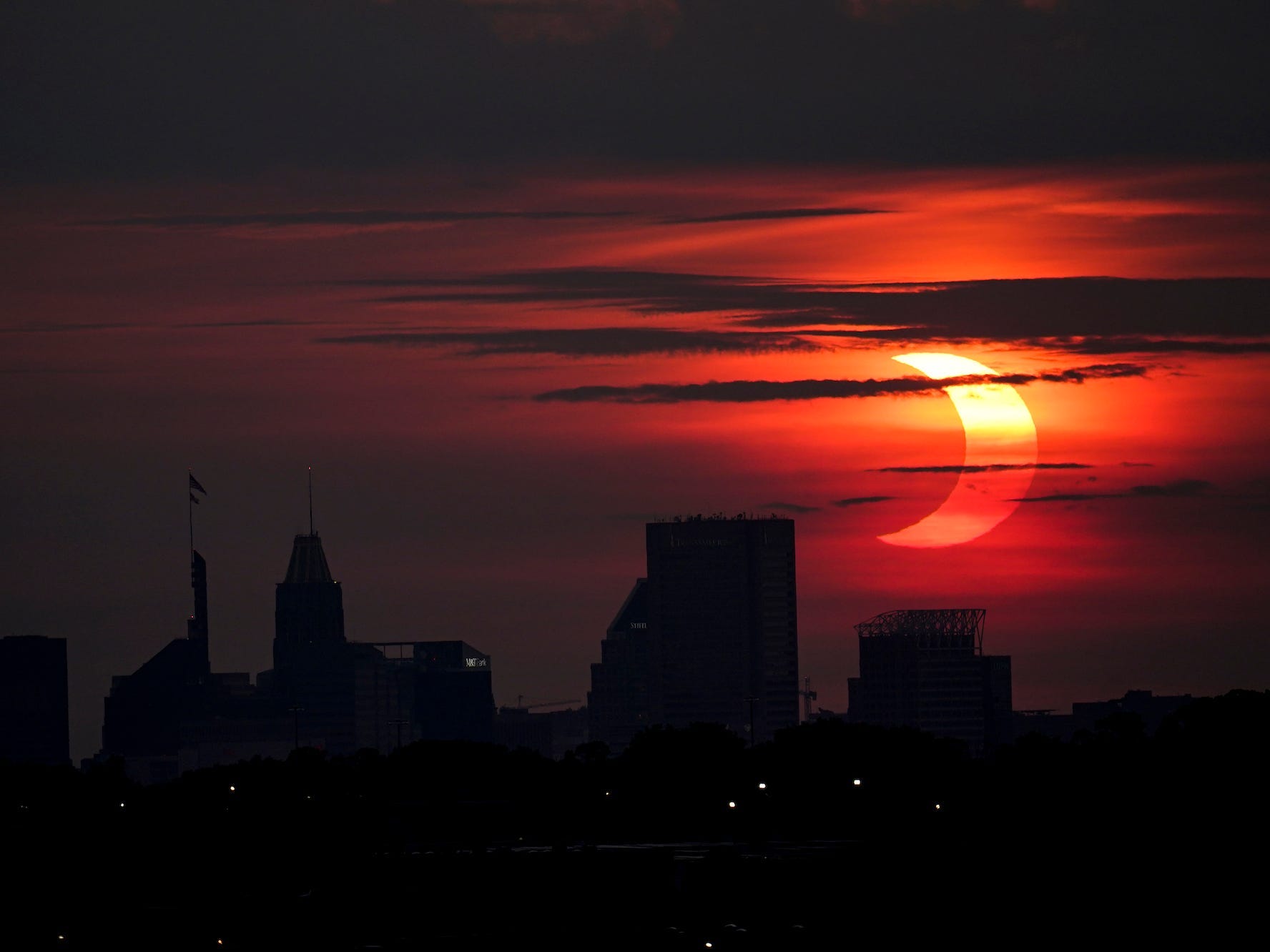
AP Photo/Julio Cortez
The space enthusiast Brandon Berkoff woke up at 5 a.m. to snap this picture from the Sunken Meadow beach on Long Island, New York. "I got there right as the sun got above the horizon," he told Insider.
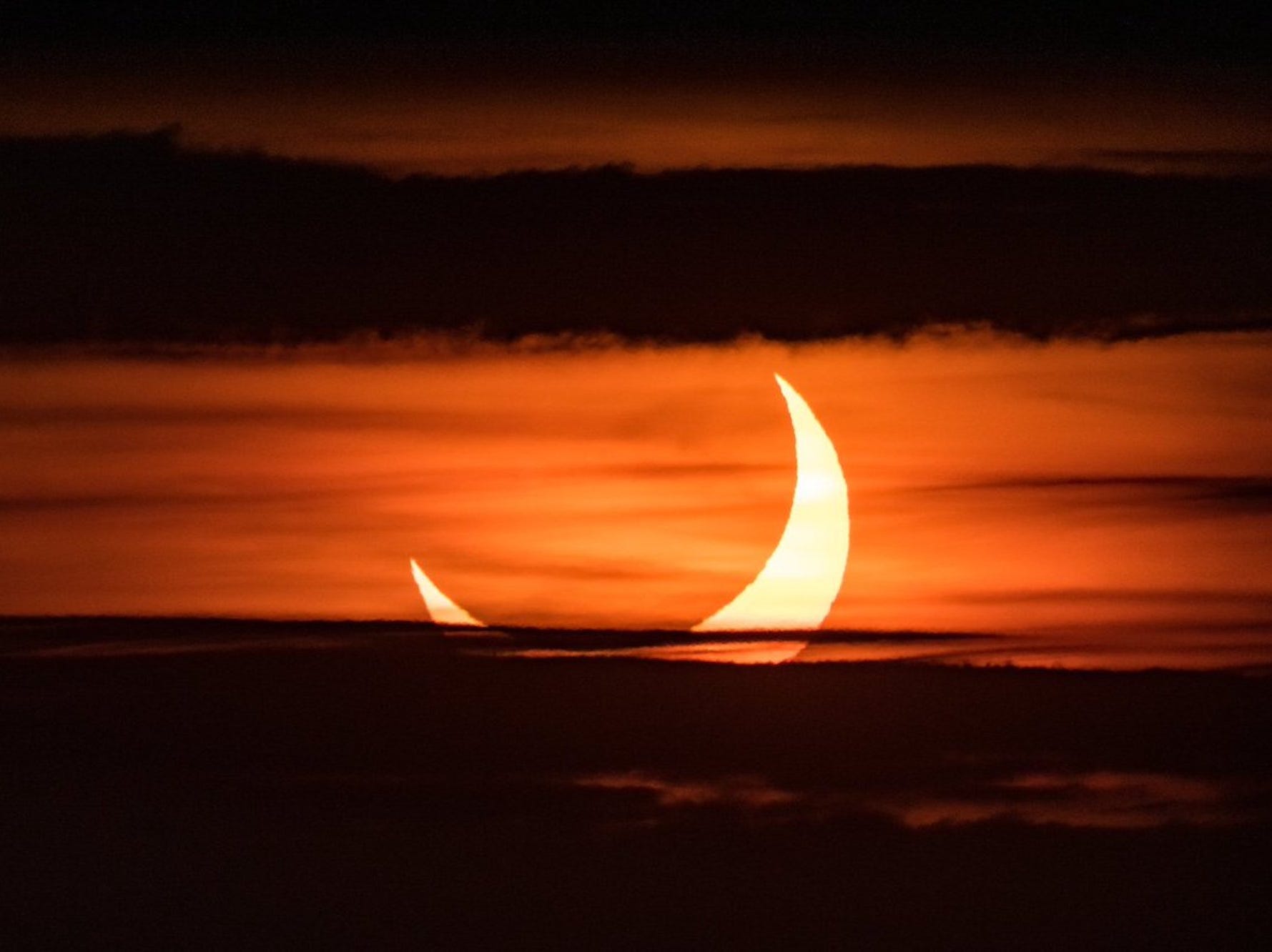
Brandon Berkoff (@spacebrandonb
The meteorology student Collin Gross was also an early riser and met about a dozen people on a beach in New Jersey waiting for the eclipse. "It was amazing!" he said. "This was the first one I've actually seen, and it's so much more amazing seeing it in person."
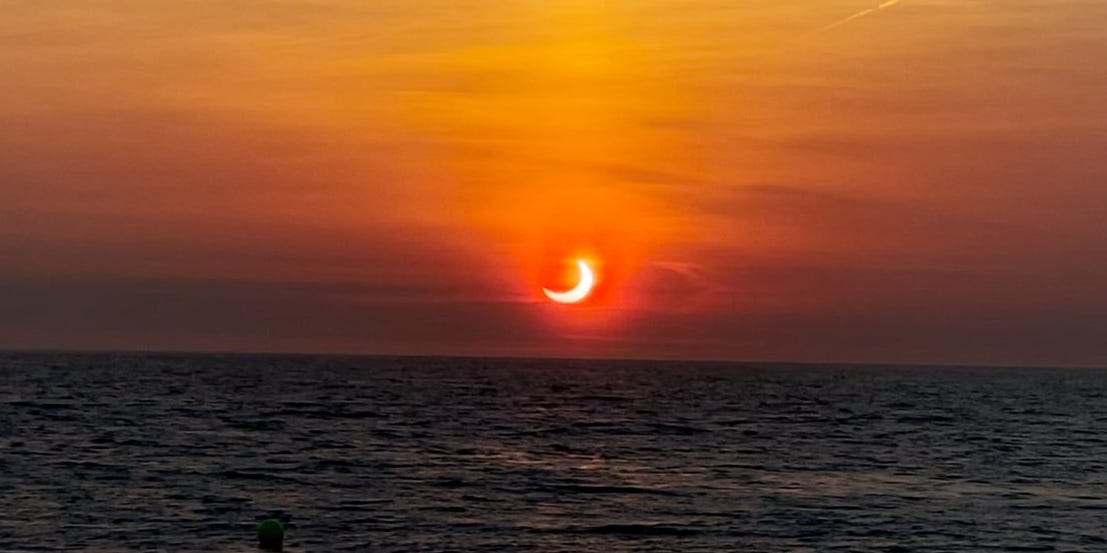
Collin Gross
Here, the partially blocked sun is seen behind the Statue of Liberty:
-Gary Hershorn (@GaryHershorn) June 10, 2021
Here, behind the Mackinac Bridge in Michigan:
-Trevor Mahlmann (@TrevorMahlmann) June 10, 2021
Here, as seen from Delaware and Washington, DC:
-NASA HQ PHOTO (@nasahqphoto) June 10, 2021
The video below shows a feed from a satellite that captured the shadow of the moon darkening the Earth as it passed in front of the sun.
-NWS Boston (@NWSBoston) June 10, 2021
There won't be another annular solar eclipse this year, but it's the first of two solar eclipses in 2021.
Insider's Aria Bendix describes the celestial science behind the occurrence in a previous post.
